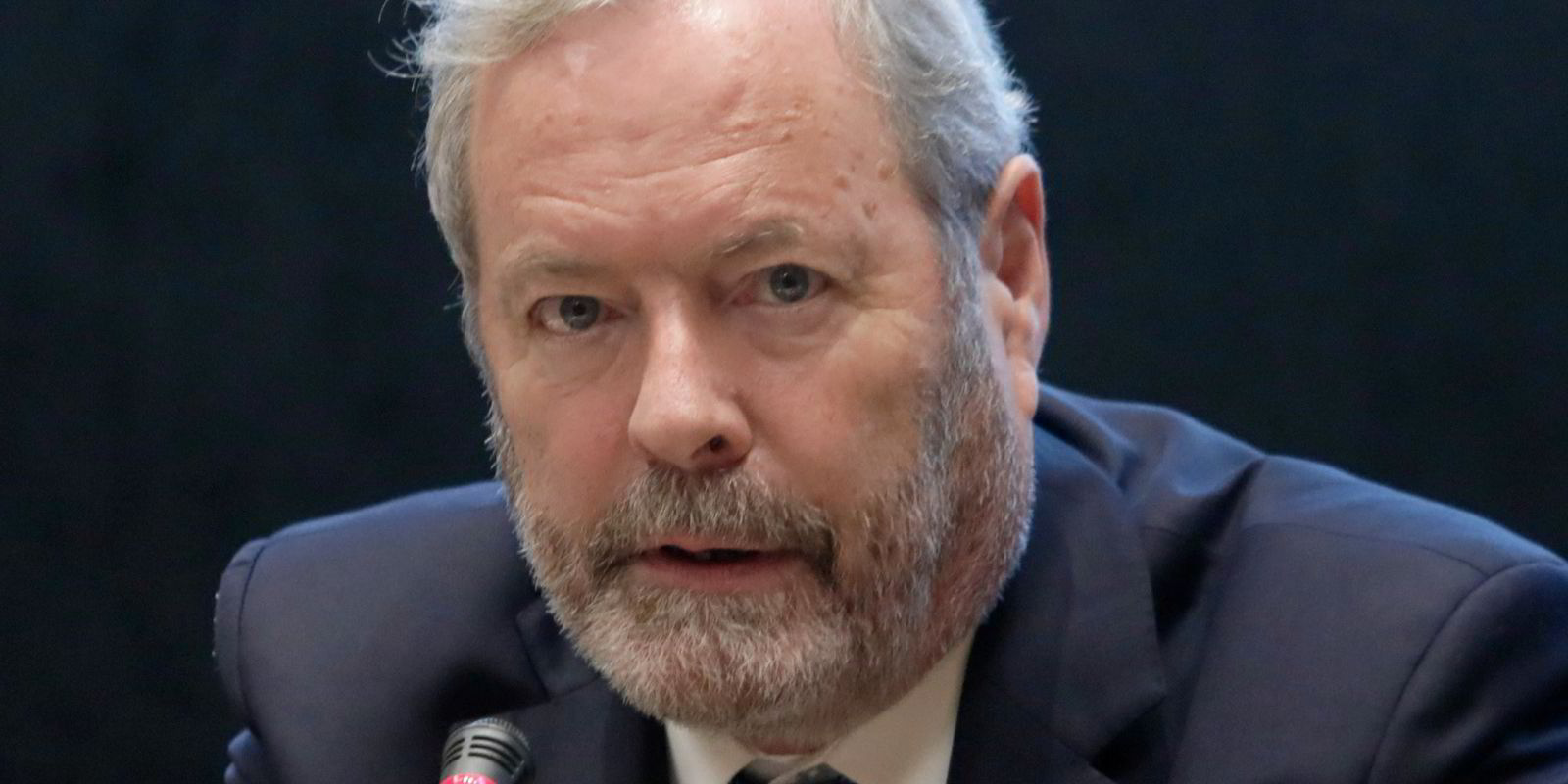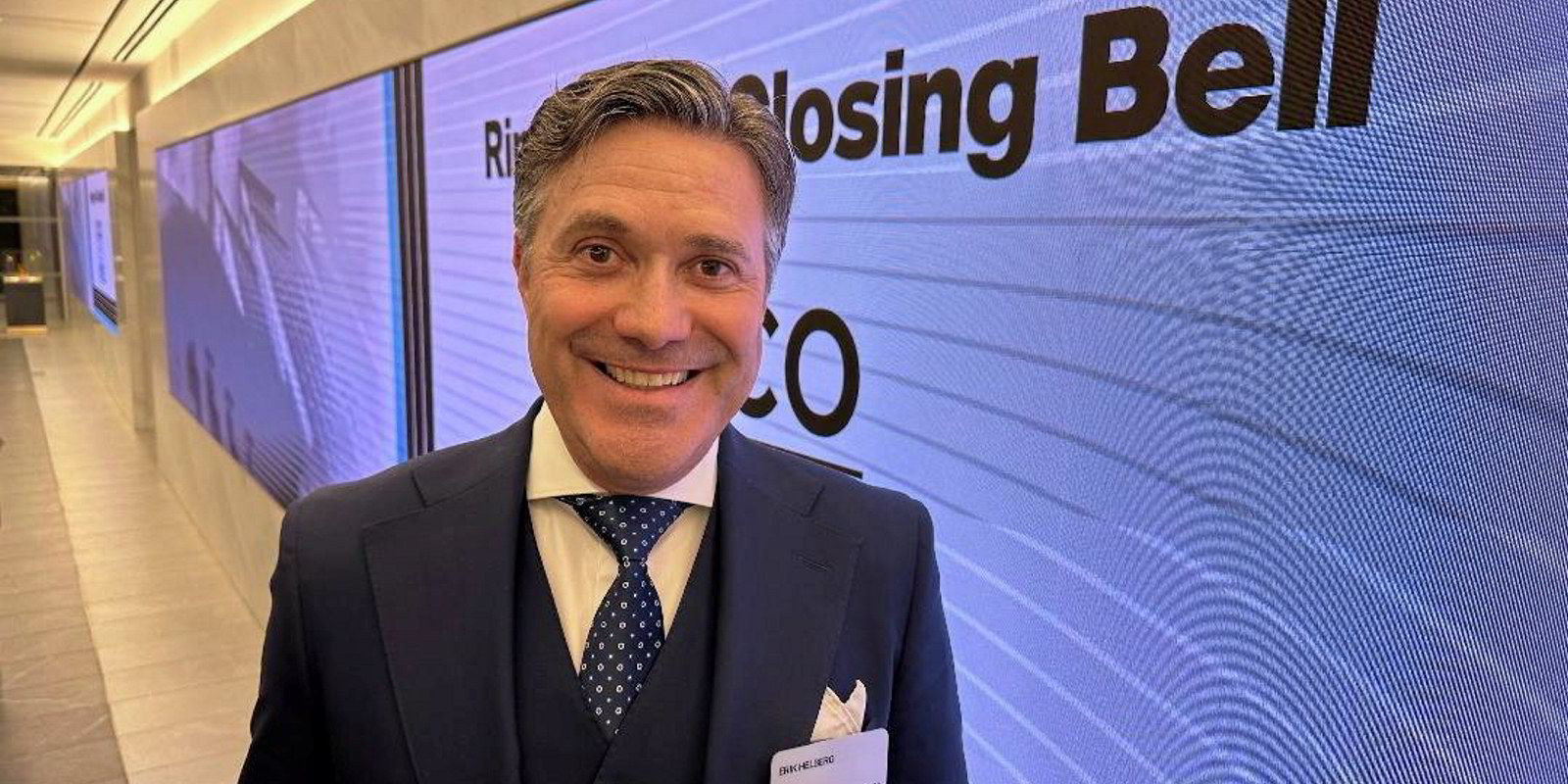Fundraising in global capital markets for shipowners is at a years-long low.
And that’s not necessarily a bad thing unless you happen to be one of the investment bankers who makes a living off collecting fees when companies sell stock, bonds or a mash-up of the two.
But there may be a turn coming, and it was a prominent lender — not an investment banker — who was able to articulate that case on Monday morning at the annual Capital Link international shipping forum in New York.
Flush with cash from strong performances in most operating sectors, shipowners do not need a lot of outside capital now, but they will reach “an inflection point” as shipping makes a difficult transition to future fuel options, said Michael Parker, global head of shipping & logistics at Citi.
“Fortunately, the industry is in a good place,” he told the conference. “But what will come is financing the cost of decarbonisation, and that is going to be much more expensive.”
Parker drew a contrast with past shipping eras in which panels like the ones he sat on were full of so-called vulture investors, the distressed-asset specialists within private equity firms.
Shipping is in a far better place, coming off a few years of strong markets and with more time still to plan as companies assess future fuel alternatives.
“It’s one of those rare periods where shipowners are preparing,” he said. “And even though people don’t know what decisions to make yet, they know they’re going to have to make decisions in some time.”
As TradeWinds reported on 29 January, equity raising in the global capital markets for public shipowners in 2023 fell to the lowest in the past nine years — by far.
For IPOs, only three shipping deals were conducted for a total of $319m.
The number of deals was the lowest since the two flotations of 2020, while the money raised was the weakest since the $15m sourced in 2019.
However, the real impact of curtailed activity was shown in the follow-on market.
It is here that established public companies issue more of their shares to meet strategic imperatives, whether these be fleet growth in stronger markets or balance-sheet liquidity in weaker ones.
Cargo shipowners carried out only four deals worth $91m during the year.
The worst year measured by Clarksons since 2015 was the 16 follow-ons carried out in 2022. The high total for the period was 57 completed in 2017.
In dollar terms, the lowest raise was $662m for 2022. The high was $5.2bn in 2017.
The capital markets drought also got a dissection on a panel featuring investment bankers such as Christa Volpicelli, Parker’s colleague as Citi’s head of maritime investment banking.
“We’re in a unique position where many companies don’t need money and have been paying down debt,” she said.
“It has been slower in the US for the last couple of years, but that’s really been a function of companies not needing to raise capital, which is a good thing. Shipping is cyclical. When companies are making money it’s when they don’t want to be investing in assets.”

Even in carrying out merger-and-acquisition activity or acquiring fleets, public companies often are using existing shares rather than issuing new ones, Volpicelli noted.
Recent examples include Star Bulk Carriers’ pending $500m acquisition of Eagle Bulk Carriers in an all-shares deal, or International Seaways’ decision to use shares for 15% of the purchase price in its buy of six MR product tankers from private equity player Wayzata Investment Partners.
However, with some listed owners now approaching or even exceeding their net asset values in share price, it is worth watching whether equity raises become more appealing, she said.





